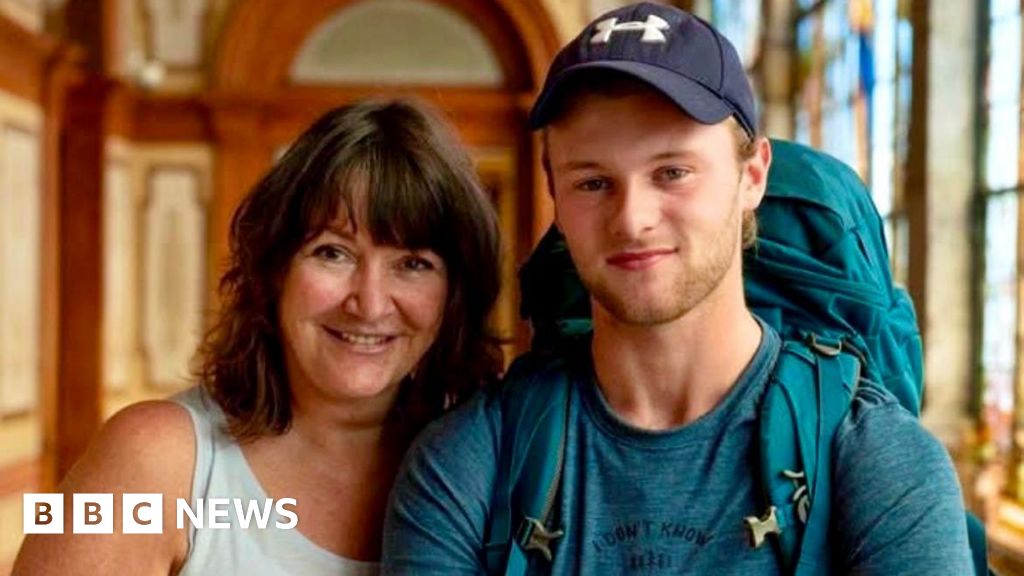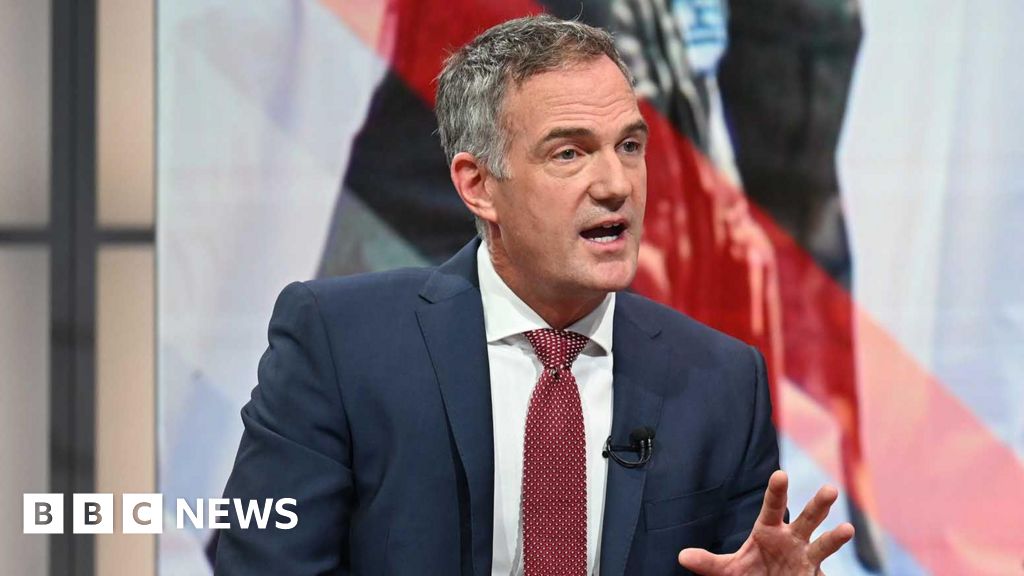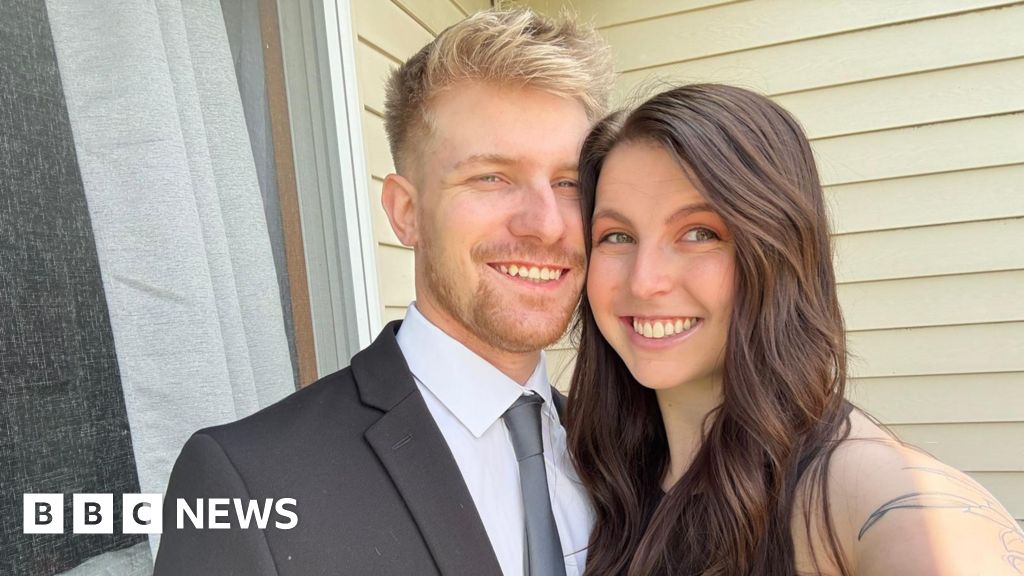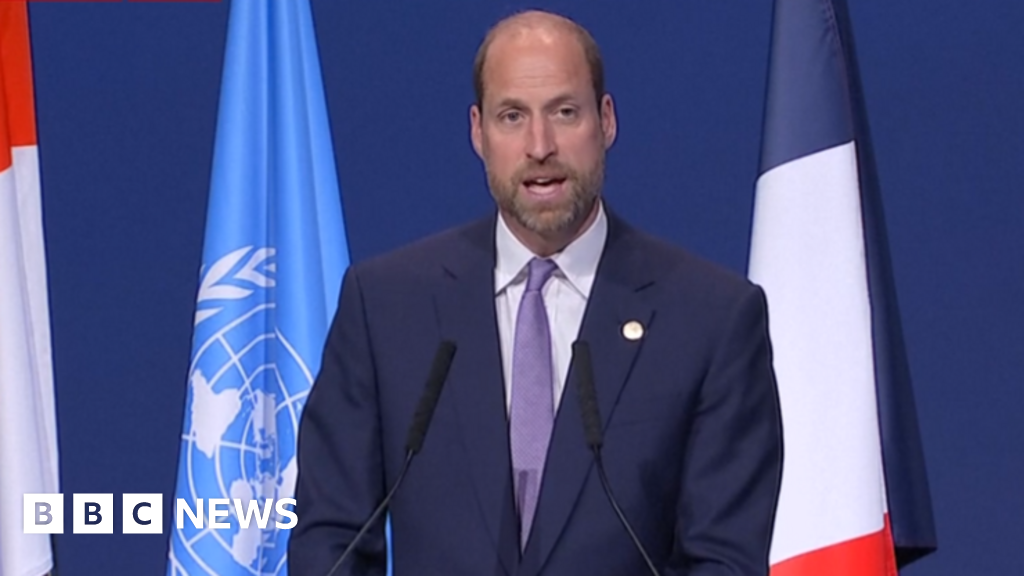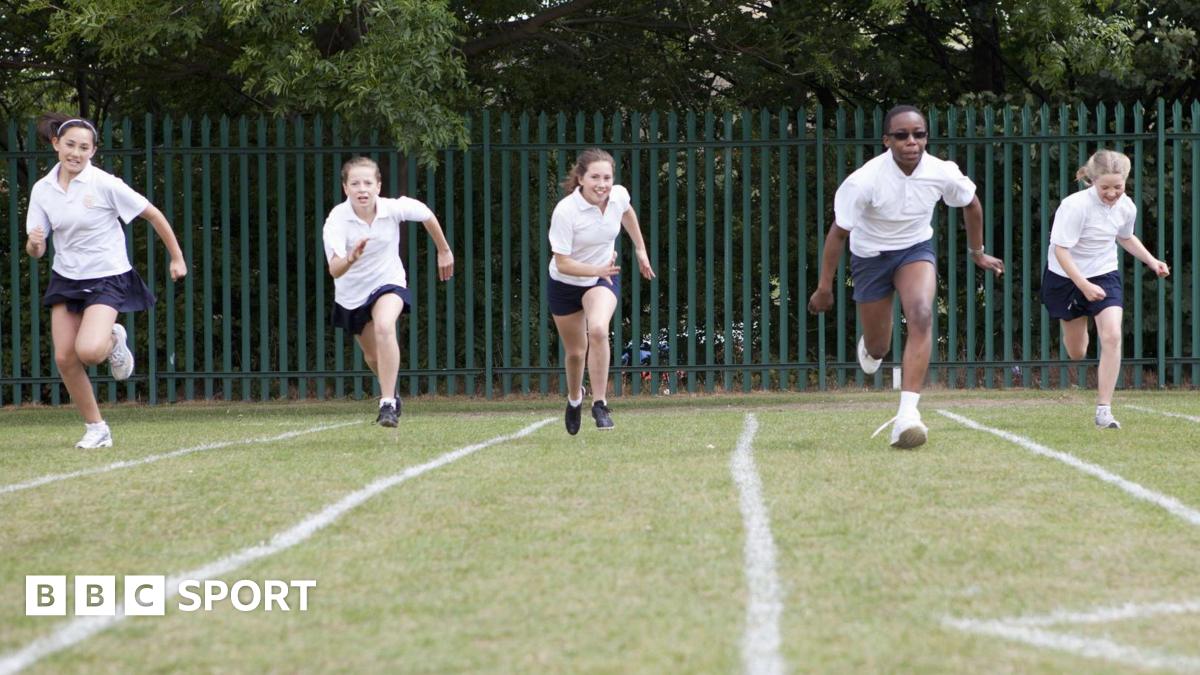Angus Cochrane
BBC Scotland News

 Getty Images
Getty Images
Terminally-ill Scots would be able to request medical assistance to end their life under the proposals
For the third time in Scottish parliamentary history, MSPs are to vote on plans to legalise assisted dying.
The ballot, which would allow terminally-ill adults to seek medical help to end their lives, comes after MPs voted in favour of similar proposals for England and Wales.
Supporters describe the Holyrood bill as a progressive move to ease the suffering of dying Scots.
Opponents say it would fail to safeguard some of the most vulnerable people in society.
The proposed legislation would allow a patient to request medical assistance to end their life - but only if they had a terminal illness and had been ruled mentally fit to make the decision by two doctors.
Liberal Democrat MSP Liam McArthur, who tabled the bill, recently said the minimum age of people who could seek an assisted death would rise from 16 to 18.
The Scottish Parliament will hold a free vote on the bill - which means MSPs will not be instructed on how to vote by their parties or the government.
The stage one vote is on the general principles of the bill.
A simple majority of votes in favour (more "yes" votes than "no" votes) would allow it to progress to stage two, where MSPs could propose changes.
Another vote on the final draft of the bill would be held before it could become legislation.
If MSPs do not back the bill at stage one, it will fall.
The ballot, which will follow a debate in the chamber, is expected to be close.
Dozens of MSPs have declared support or opposition to the bill, though many others are thought to be waiting to hear arguments in parliament before making up their mind.

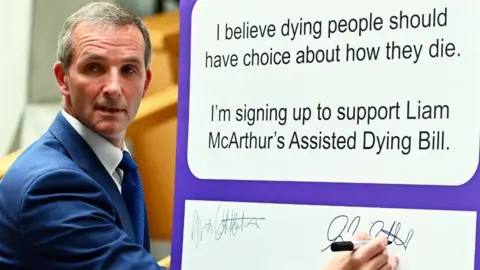 Getty Images
Getty Images
Lib Dem MSP Liam McArthur has led the campaign to legalise assisted dying
The Scottish government is officially neutral on the matter.
First Minister John Swinney and Deputy First Minister Kate Forbes, however, have said they will not support the bill.
Former first ministers Nicola Sturgeon and Humza Yousaf are also opposed, as is Scottish Labour leader Anas Sarwar.
In a post on Instagram, Sturgeon warned of the potential for "internal coercion", which she described as "a feeling on the part of terminally-ill individuals that others might be better off if they were no longer here".
She also raised concerns about trying to define terminal illness in legislation.
Sturgeon added: "If assisted dying is an option, I worry that many people will choose to die more prematurely than they need to."
Labour MSP Pam Duncan-Glancy, the first permanent wheelchair user to be elected to Holyrood, has been among the most vocal critics of the bill.

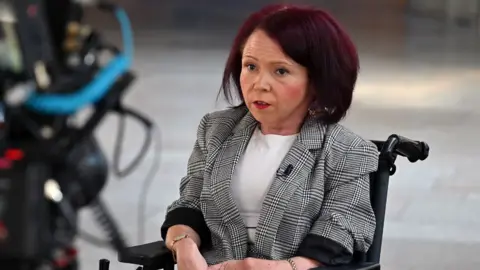 Getty Images
Getty Images
Pam Duncan-Glancy has raised concerns about the impact on disabled people
Speaking on the eve of the vote, McArthur said the legislation had "strict eligibility criteria" with people able to make a choice "in a way that is robustly safeguarded".
The Orkney MSP said: "My bill would put in place safeguards that don't currently exist, a situation that leaves many terminally-ill people more vulnerable and more likely to take matters into their own hands."
He added: "Scotland cannot put off this conversation. And parliament cannot continue to leave this issue in the 'too difficult' box.
"It must, at the very least, allow time for amendments to be considered to see if a bill can be agreed that commands majority support and public confidence."
His bill has been backed by Scottish Lib Dem leader Alex Cole-Hamilton, ex-Conservative leader Jackson Carlaw and Scottish Greens co-leaders Lorna Slater and Patrick Harvie.
Social Justice Secretary Shirley Anne-Somerville and Scottish Conservative deputy leader Rachael Hamilton have also said they will vote for the proposals at stage one.
Health Secretary Neil Gray, who will speak for the government during the debate, said he would abstain from the vote to maintain neutrality.
Westminster bill
A bill to legalise assisted dying in England and Wales passed its first stage at Westminster in November.
The proposals face months of debate, scrutiny and possible amendments, as well as final approval from the Commons and the Lords, before they could become law.
The most recent Holyrood vote on assisted dying, in 2015, was defeated at stage one by 82 votes to 36.
That bill was tabled by the late independent MSP Margo MacDonald, who died in 2014 after being diagnosed with Parkinson's disease.
Following her death, the bill was taken up by Harvie, who will again argue in favour of a law change in this year's debate.

 3 weeks ago
42
3 weeks ago
42







